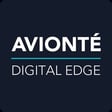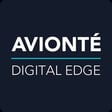The Challenge of Digital Transformation in Staffing
00:00:00
Speaker
We've heard it all before. There's a technology revolution taking place in the staffing industry. Digital transformation is here. But despite millions of dollars in new technology investment, staffing agencies and their frontline recruiters still struggle with the same challenges. Scarce talent, demanding clients, and advanced technology that doesn't really help at crunch time.
00:00:24
Speaker
We keep automating the same old processes. So how do we unlock the riddle of digital transformation for staffing?
Introducing the Aviante Digital Edge Podcast
00:00:35
Speaker
Welcome to the Aviante Digital Edge, a podcast series that explores the digital transformation of staffing and temporary employment. My name is Chris Ryan, and I'm the Chief Strategy and Marketing Officer for Aviante.
Chris Johnson on Consumerization in Staffing
00:00:49
Speaker
With me today to explore the digital transformation of staffing is Chris Johnson, Vice President of Professional Services for Aviante.
00:00:57
Speaker
Now, Chris has an interesting and unusual background. Chris was designing consumer websites back when web-based online marketing was in its infancy. He spent time at IBM, Accenture, Endecco, and Checkr. And he brings together an unusual skill set.
00:01:15
Speaker
He's a staffing expert, he's a technology expert, and he also understands online consumer marketing. So when we talk about the consumerization of staffing or digital transformation, Chris is someone you want to listen to very carefully. So welcome, Chris. Thanks, Chris. I appreciate you having me here today.
00:01:35
Speaker
So I wanted to start by asking you something you said to me a while
Investing in Technology vs. Achieving Transformation
00:01:40
Speaker
back. You said digital investment does not equal digital transformation. What did you mean by that statement?
00:01:48
Speaker
It's like anything else, right? We can invest in something, but you have to do something with it. So you can walk out on the street and buy all the tech in the world, the shiniest piece of code, the new application, the new piece of SaaS. So you've invested in it. That's the easy part, right? But then you actually need to do something with it and transform if you're going to get that ROI. And this is something that I've been seeing
00:02:12
Speaker
I mean, I've been in this industry over two decades now and it's the terms, you know, we hear shelf wear a lot, especially if you're buying a bunch of stuff off the shelf. You never know what happens in the sales process and you get things that you don't understand. You don't know how to use them. There's a lot of things kind of sitting around it or you're only using five or 10% of the features of the piece of code that you bought. So that's really where that's coming from.
00:02:35
Speaker
Chris, let me ask you about that a little bit because I've noticed this with human resource technology, with staffing technology.
Barriers to Adopting New Technology
00:02:42
Speaker
We see this often where people, they're enamored by the technology, but then they never end up using it. This seems to be a theme. Why do you think it is?
00:02:52
Speaker
Well, I think it's easy to walk on a conference room floor or go to a trade show and find something really cool or to watch a webinar or hear a podcast and say, oh, I need to get a piece of that. That sounds great. I want to be a cool kid as well. But then you have to bring it back to your business and you have to do something with it. And usually where it falls down is somewhere around, oh, you mean I actually have to change my processes that feel like they're working to actually do the digital transformation? I'm too busy for that.
00:03:21
Speaker
I hear it week in and week out. So essentially the technology is great as long as I don't have to change my business or I don't have to change what I do day to day and people find that a lot harder. Is that fair? It's less about I don't want to do anything and it's, well, I only want to do a little bit. And then that's where we get into this conversation around maximizing the ROI, making sure you're getting full return on the investment that you made because you fully transformed around the digital solution.
00:03:50
Speaker
I've noticed that sometimes agency owners, they want to bring change to their organization, but there isn't a strong push within the organization itself to actually drive the change through or to make it work. Nobody's recruiting goals or sales goals go away just because they purchased new technology. So my guess is that some of this is also that people only have so many hours in the day to get something done.
00:04:13
Speaker
Well, it's so many hours in the day as an advisor. It's our job to sit down with the customers and not just the CIO or CEO or the head of TA, but to sit down with everyone, maybe not personally, but at least have an awareness and have it be part of the adoption plan.
00:04:29
Speaker
As you start answering this to what for me, for everyone, and that's a really important piece in digital transformation. And that's everyone from what does it mean for the CIO? What's it mean for the CEO of the board, but also down to that recruiter sitting in a branch somewhere in rural South Carolina. What is this transformation going to mean for them? If you can answer that, it usually agrees as the skids for any sort of adoption exercise.
The Shift in Talent Delivery
00:04:51
Speaker
For the past 30 years, staffing has been continuously automating. We've automated portions of the front office and the ATS. We've automated a lot of the back office. What's fundamentally different about digital transformation of staffing today? Is it just more automation or are we at an inflection point?
00:05:11
Speaker
Inflection point, 110%. I think if we look at what's been happening and I'll even go as far as to say HR tech, in-staffing, corporate recruiting, just everything that I've been seeing since the late 90s, it's always been about automating process. I can have robotic RPA come in and automate some existing process. I can buy a chatbot that automates an existing process.
00:05:34
Speaker
I think that inflection point we're at is that we're stepping away from that concept and now we actually need to start reimagining what we're doing. Kind of back to your first point, I'm sure I'm going to answer the question in a very similar way. You have to really embrace the art of the possible and then figure out what that actually means for your firm, for your customers, for staffing in general.
00:05:56
Speaker
And a lot of times that means taking risks and more importantly, just trusting in the technology. You know, you talk about crossing chasms all the time, or there's a trust chasm that we need to get into now. And what that means is if the technology can do algorithmic matching, let it.
00:06:12
Speaker
don't trust but verify trust. And what that's going to require is reimagining how you actually deliver talent to your customers. And it may mean flipping workflows on their heads and doing something later in the funnel that you traditionally did earlier because by doing that, you now allow the technology to live and breathe.
Evolving Employment Experience and Technology
00:06:32
Speaker
So when we talk about digital transformation, one thing that I find fascinating is this trend around
00:06:38
Speaker
the consumerization of the employment experience. Historically, HR was often seen as a gatekeeper for talent, and today it seems that HR is in a different place. Of course, there are talent shortages, but beyond that, we have created
00:06:54
Speaker
a new era of expectations around what an employment experience should look like. So now we often talk about talent engagement, talent loyalty. How do you use technology to build employee loyalty? Comment a little on what that has done for digital transformation of staffing and how it's changing things.
00:07:14
Speaker
Oh, I dig it. You and I both dig it because now we're having conversations that sound a whole lot like marketing conversations or specifically when you talk about a talent platform or a talent marketplace, it's more like e-commerce style conversations to where do you have the proper supply and demand? Are you aligning to the things that are important to the candidates that you're working with? Certainly.
00:07:39
Speaker
candidates, social and socioeconomic alignment in light industrial is going to be very different than ITP. And the things that talent are looking for, are you speaking to what's important to them? And are you meeting them where they're at? And that can be, again, certainly the nature of the work. It can also be generational.
00:07:57
Speaker
Anybody that's heard me speak, you know, I love talking about my son who's a proper Gen Z kid. He's 20 years old. So I like looking at him as compared to me and compared to other folks that are out in the workforce and saying, how do you answer the call to each of those personas and how do you create stickiness with each of them?
00:08:16
Speaker
And it's a fascinating thing that as you said, it used to not really be important. Staffing used to be kind of an arms and legs game. It was, can you get the job done with the people announced about the quality, the people and the people that you're putting in place are actually interviewing you as hard as you're interviewing them.
00:08:33
Speaker
One thing that fascinates me is I often hear people in the staffing industry complain that simply getting people to show up for work is a real chore. Actually getting somebody to commit, to show up, to stay is hard. And yet when I look at the practices that we have in place around employment, frankly, we often are disrespecting the time of talent or we make it really hard for people to actually show up.
00:09:01
Speaker
So from my standpoint, this consumerization, it's not about just building loyalty, but it's actually also respecting people's time. Yeah, everyone's busy. Look at my son, 20 years old, in light industrial workforce. He's busy too. And he doesn't have the time to drive around the different branches and fill out a bunch of paperwork. You're solving so many things by digitizing that top of the funnel. None of it's rocket science.
00:09:26
Speaker
We talk about consumerization. I'll also look at LinkedIn and Amazon a lot as what good looks like with really rich, immersive data experiences that are helping me make a decision about something that's important in my life. But they're bringing that decision-making process to my couch.
00:09:42
Speaker
I think that same mantra is really hitting home in HR now. So speaking of bringing it home to the couch, with the advent of mobile talent platforms, how does that impact the frontline staffing jobs like recruiting? And while you're at it, can you comment a little bit about what's the difference between a mobile app and a mobile website? Why would you want one rather than the other?
00:10:04
Speaker
Oh, that's a Pandora's box. Well, let me talk about the recruiter first, and then you're going to get me started on an omnichannel rant here in a second. So let's just say with talent marketplace, I consider that just a digital funnel, right? You know, talent marketplace is an interesting thing to talk about around. You can move left and right and up and down through the funnel. But as we begin to digitize that sourcing and selecting and pressing through the funnel that recruiters classically did,
00:10:29
Speaker
they have a bunch of time on their hands to do really more human things.
Mobile Apps vs. Mobile Websites
00:10:34
Speaker
So I think this is the year of inflection points. With all of the technologies out there, recruiters can now really begin to be more human centric. So instead of pushing paper and handling call outs, let the technology handle the call out. So then you can be reaching back out to that candidate and saying, hey, Chris,
00:10:50
Speaker
Did you call it out? Is everything okay? Did you not like the assignment? Is there something you'd rather do? Hey customer, sorry about that. We won't let it happen again. Here's what we're going to do to remediate the five no shows this morning. So it allows the folks that are in the branch and in the field to do more human things because they're just not having the like thought eyes and crossed T's. I love where technology's going. I think the next generation of recruiters are going to be the best generation of recruiters.
00:11:16
Speaker
What is it that ultimately a mobile talent platform does? If I understand, you're saying it's freeing the recruiter to do something very different than what they do today.
00:11:27
Speaker
Yeah, absolutely. Again, when you are trusting the technology and not trusting but verifying, if we're trusting but verifying, then all the cards are off the table. But if you're trusting it to let it do what it does, and that could be, like I said, pre-screening, matching, algorithmic matching, firing candidates further down in a funnel so that you're looking at them, and they've basically done what you do. Let's just say a recruiter comes in and reviews candidates at the top of funnel from 8 till noon.
00:11:51
Speaker
Let the technology do that. So at eight o'clock in the morning, you're now starting to place folks, not just review them because the tech's done that. Most HR departments think that if it's on the web, their job is done.
00:12:03
Speaker
And certainly a few years ago, every employer thought that simply having a website was sufficient. Why would you want a mobile app instead? Isn't it the same thing? Yeah, it's really not. That experience is never going to be as rich as one that's with a bespoke mobile app. It's developed and installed on the phone. For that real estate on that person's phone, the app will always win every single time because it's a very immersive experience. You have the real estate. It's locked in.
00:12:32
Speaker
Text will never be as good as a push notification. I can't tell you how many texts I don't read and I forget. So Chris, if I've done it to you, I'm completely sorry because they get buried. They're below the fold. But this push notifications, those things don't go away. I'm still seeing some from a week ago until you clear it out. So just having a native app and being able to do push notifications is amazing. Getting in there and seeing pay and W2 and tax information and the self-schedule, these are things that
00:12:59
Speaker
Gosh, would just take forever through a browser and an app just does it super slick. I've seen some statistics that suggest that about 90% of the time that people spend on a mobile phone, they're actually looking at an app, not looking at a website from their browser. Let's shift gears and let's talk a little bit about the concept of a digital talent marketplace.
Redefining Recruiter Roles with Digital Marketplaces
00:13:21
Speaker
You know, if you're a traditional staffing agency, you might be like,
00:13:24
Speaker
What's a digital talent marketplace? This sounds like a fancy term. Does this actually mean something? What is a digital talent marketplace and how does it differ from traditional staffing?
00:13:36
Speaker
Well, that's a pretty easy one to answer. So how is Netflix different than Blockbuster? If you take a look at the digital talent marketplace, it puts the talent in the driver's seat. It allows them to window shop. They can look at opportunities in a rich talent marketplace. They can watch the preview to the movie so they can get in and look at the job description. Potentially, there's even some rich content in there that's explaining a day in the life.
00:14:03
Speaker
Why do you want to join staffing firm X and do job Y? You at least can start really engaging the talent on a talent marketplace. Maybe even seeing ratings, you know, as we start getting into redeployment scenarios, we've got five star ratings that sit in a lot of talent marketplaces where, was this one good? Is this one bad? Again, kind of going back to that Amazon use case, the Netflix is a really good one.
00:14:28
Speaker
I can window shop and look and see and figure out, do I want to watch this or not? I'm not really sure. Let me take a look and engage that classically is a lot of back and forth between a candidate and a recruiter via email, or it's hours sitting in a branch going back and forth. So that concept of.
00:14:47
Speaker
just-in-time info, enough info, where I want it, letting me get further down the decision-making process alone on my own time at my own pace. That's really the talent marketplace versus having to stand in front of a bunch of CDs and pick them out and then have to bring them back to the Blockbuster branch.
00:15:04
Speaker
It sounds like you're posting all your jobs out there for the talent to look at on their own, and you're providing them with enough information to make decisions and actually self-activate and contact you, the staffing agency. So it sounds like the talent is actually active at the top of the funnel.
00:15:23
Speaker
Oh, 100%. They're active from the top to the mid. This gets really cool once the talent is already bought. Once we've onboarded them, we've credentialed them. And they've gone out on assignment and they're coming off. And now we can start looking at where's my next assignment. I had a teacher forgot what grade it was, maybe freshman year, and he always talked about roving eyes. No roving eyes on test day. Well, don't give candidates the opportunity to have roving eyes, right? Keep them in your own gig economy. Keep them in your own four walls.
00:15:53
Speaker
And the best way to do that is to ensure them that there's another gig, right? And another opportunity so that I don't start looking at other staffing firms, other talent marketplaces. So yeah, putting that power in their hands is amazing. And again, bringing it back to the recruiter. I think recruiters generally want to do that. That's something that BNHR, we always tell ourselves, we do do that and we want to do it. But the truth of the matter is.
00:16:16
Speaker
Sometimes it doesn't happen. And those candidates that we've just spent the time and money to acquire fall out and they go do something else. So let the technology keep them engaged. So what's interesting to me about this is we often talk about the importance of a recruiter being a salesperson to the talent.
00:16:33
Speaker
But in a talent marketplace, the goal is to get the talent to show up at the top of the funnel on their own and then to stay in the funnel with or without the recruiter encouraging them. You know, marketing and branding become a lot more important than just the upfront selling process. It's starting to change the kinds of skills you want to bring into a staffing agency.
00:16:57
Speaker
Absolutely. Marketing and Facebook ads and Instagram and TikTok. Yeah. These are all new ways to market and speak to the candidates where they're at. Where are they at? Not a monster anymore. Maybe they're on indeed hanging out a couple of job boards. Where are they really at? They're on TikTok.
00:17:14
Speaker
on Instagram. So yeah, you kind of got to meet them where they're at. But something you said about letting the candidates engage without the recruiter, I think there's a lot of truth to that. And I do say that, but that outreach, that engagement, looking at the data and saying, Hey, Chris, you've been in the app for two weeks, you're looking around, you haven't applied for anything or expressed interest in anything, being able to have Spidey sense and reach out to that passive candidate and convert them to an active candidate that you can generate revenue on. That is important stuff. But for the ones that are
00:17:43
Speaker
They're pretty locked and loaded and they know what they want to do and they're effectively walking onto your doorstep ready to work. You don't have to spend a lot of time grooming that data. You can spend time converting the passive ones that are sitting in the middle. So there is still some recruiter play in there. I like to talk about technical advantage and it's like having a really big lever or multiple pulleys. Use the technical advantage and you do the same thing in HR tech. Use the tech advantage and let it do the things you don't want to do or let it make certain things easier so you can focus on the hard stuff.
00:18:13
Speaker
Yep. Let's say they start to build a marketplace. They have a place where people can come to view jobs on a mobile app. They encourage people to download the mobile app. They're able to onboard them remotely. But what are some of the other ways that a digital talent marketplace can actually change the way a staffing company operates in terms of roles and responsibilities and KPIs? Does this change the way we think about daily staffing operations?
00:18:41
Speaker
Sort of, you know, we've touched on this a few times in the conversation and I think it, it shifts everything down in the funnel. Generally in staffing, the fills are important, but top of funnel is hyper important as well. So I don't know that it changes the roles, responsibilities. It may change the types of conversations we're having and where we're having them. So more bias on that final check in are we winning the hearts and the minds of the candidates? Are we ensuring that we're creating stickiness?
00:19:09
Speaker
Are we doing all the things that we need to do to make sure that they feel loved and part of something great and amazing? We want them to feel engaged and important. So that's not a conversation that's not happening today. We're just putting more bias on that conversation.
00:19:26
Speaker
We're not talking to customers. We're just saying, hey, now you can spend more time talking to customers. And how do you expand that business?
Integrating New Technology with Digital Twins
00:19:34
Speaker
How do we do upskilling of the candidates that we have? How do we go from picker-packer to driving a forklift so that we get more return on investment out of our cost of acquire?
00:19:44
Speaker
So I think talent market people get scared because it sounds super scary and we go to this world of zero touch staffing, sort of like the Uber model for staffing. But the truth of the matter is that's exotic and aspirational for the majority of the staffing businesses that are out there. What we really want to do is to shift the conversations down funnel bit. So speaking of aspirational,
00:20:06
Speaker
If I'm running a staff and company today, I'm worried about my cashflow for the next two weeks. I'm worried about taking care of the needs of some customers that called me up at 11 o'clock last night with some new changes to their shift requirements. I have a business to run.
00:20:21
Speaker
So how do i as an agency owner or an agency manager how do i incorporate the concept of a digital talent marketplace into my current operations. Yeah i hear this everyday there certainly is a strategy around let's just make incremental changes in my existing supply chain so basically.
00:20:41
Speaker
piece by piece by piece digitize what's already working today. But the truth of the matter is that's complicated for all the reasons you just said. So I have a concept of a digital twin. And what do I mean by that is we build the digital twin or the technically enabled or the supply chain that's using all the technical advantage. We can build that process next to the offline process.
00:21:02
Speaker
Let me explore this a little bit, the digital twin. You're not talking about an avatar now. What do you mean by digital twin? Are you essentially saying it's a digital copy of your brick and mortar business? Yeah, at least from a process standpoint, you certainly could go out and rebrand it and go into a new market with limited or no real estate costs and say, hey,
00:21:24
Speaker
The digital version of Chris and Chris's staffing firm is now in Jacksonville, Florida, right? I call it the Kroger model. If anybody sees little Kroger vans running around, they're disrupting the regional players with limited real estate and a bunch of little white vans. So that is a thing you could do, but really what I'm talking about. Okay. Hold on. Explain this Kroger model a little more. I want to hear about this. Yeah, just Google it. It's fascinating. This happened through COVID. So I'm down here in Florida. The big, bigger stores we have are Publix and Winn-Dixie.
00:21:54
Speaker
And what happened through COVID or pandemic, everybody started using Shipt and Doordash and basically having somebody else shop their groceries and then deliver them to the doorstep. Well, Kroger said, hmm, that's interesting. If people are doing that, then why would I even need to open up a brick and mortar store? Let me go buy a bunch of warehouse space in a really cheap part of town. And let me just get my own drivers and we'll just take all the orders online and we'll fulfill it like Amazon, like any other distribution center. And they're crushing it.
00:22:23
Speaker
So it's a way to penetrate with low overhead. You know, that's a true digital twin. So if I'm Winn Dixie or Publix or whomever is operating locally in Florida, basically Kroger is stealing some of my business and some of my profits.
00:22:42
Speaker
at very low risk. So you're saying run your staffing agency the same way. If you have a staffing agency in Cincinnati, you could open up a virtual branch in Florida, maybe just support some customers who have employment centers down there. But you could cause trouble for local brick and mortar staffing agencies in that market. That's what you're saying.
00:23:05
Speaker
100%, I would advise anybody to play with that. And that's, that is a go forward strategy for anybody that I talk with, but to kind of bring it back just a notch around the digital twin. That's, that's where we want to go. And I would love to work with anybody who wants to do that.
00:23:20
Speaker
The realistic twin is more around don't disrupt what you're doing today because it's important. You may have really, really deep DNA processes and back office things that are difficult to unwind and break apart. So what we can do is we can build that digital twin over to the side of that.
00:23:37
Speaker
and say, all right, well, let's think about those processes. Let's think about the credentialing in onboarding. Let's think about recruitment. Let's think about job descriptions and how will they be searched and indexed by an algorithm that could be very different than how they're being used today, which is most likely by people who can read them or who just have tribal knowledge of what a picker packer job description is. We now need to think about all of those things in a way that technology and the algorithms can work with them. So when we talk about a digital twin, it's looking at everything on the left.
00:24:07
Speaker
reconciling it and saying, hey, what's good? What's required? What's not? Let's change what's not good. Let's keep what's required and let's tune it up in a way that the technology can actually flourish and then build the digital twin. And then once you have that and that's working, and the way you do that is maybe one customer, maybe it's that Kroger model, you get that thing tuned up and then you start converting that traditional business over to the digital twin as it's appropriate and as you can.
00:24:34
Speaker
So how long does it take? If I'm buying new technology to create my own digital talent marketplace in staffing, what kind of expectation should I have around effort and timing? So I think it takes a deliberate investment and brain power to sit down and do that. If we are just simply trying to grab dusty three ring binders and say, teach the technology to do this old process,
00:25:00
Speaker
that can get really cumbersome.
Leadership's Role in Digital Transformation
00:25:02
Speaker
But if we go into it with eyes wide open and say, we're going to blank slate this, we're going to invest the right folks in the room, the right folks from tech, the right folks from ops recruitment, and everybody has their eyes wide open, and we're not trying to defend the past. It goes very quickly.
00:25:17
Speaker
and we can move super fast and start making really big meaningful changes. And what that means is you can get the markets really fast with that digital twin and you start getting return on investment. Back to the very first question, we start getting the ROI because now we've made the investment and we're actually making the transition to the digital twin very rapidly. But yeah, as long as we fight for the past, that's where things just take forever and they drag out.
00:25:43
Speaker
Yeah, so really technology is not the barrier as much as leadership and having an organization that is prepared and willing to tackle the challenges. Yeah, it is and I get it. Change is scary. I just moved a couple months ago and it was complicated. I lived in the same house for 17 years and I was living through my own change management process. But I also had my eyes wide open and knew what the goal was. When I walk into a room,
00:26:06
Speaker
with any one of our customers, it's always thinking, yeah, I get it. This is scary and it's different and we're going to blaze new paths. But as long as everybody's willing to partner and there's trust in that room, we can make it happen fast. Chris, we're coming towards the end of our discussion. Any final words for our audience?
00:26:22
Speaker
Last comment I would say is if you're listening to this, really start looking at your business and think about is there a world where I could start looking towards lower touch, higher margin business and how could I actually capitalize on the technology that's out there? What sort of solutions are out there? Are there some that are bundled together with an easy button and should we try them out and get on top of that super fast? So hopefully just leave everyone with a couple of question marks.
00:26:52
Speaker
Chris, thank you so much for joining us and sharing your expertise around the digital transformation of staffing. It's always fun to riff with you and look forward to having you back in the future. And thanks to our audience for joining us. We want to remind our listeners, don't forget to subscribe to our Aviante Digital Edge podcast. To learn more about Aviante, please visit our website at aviante.com. Until next time, this is Chris Ryan. Thank you for joining us on Aviante Digital Edge.







